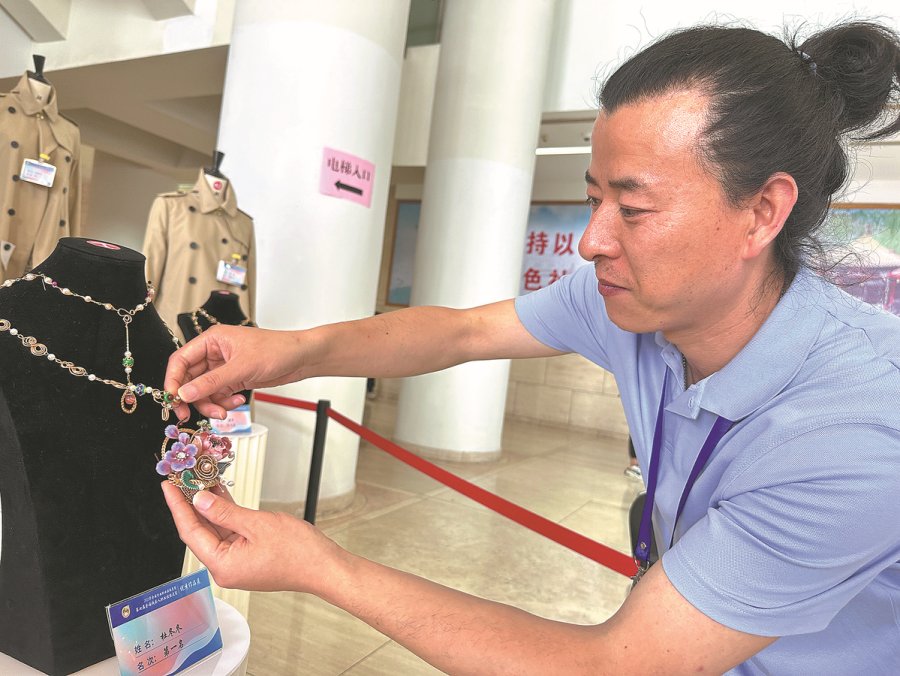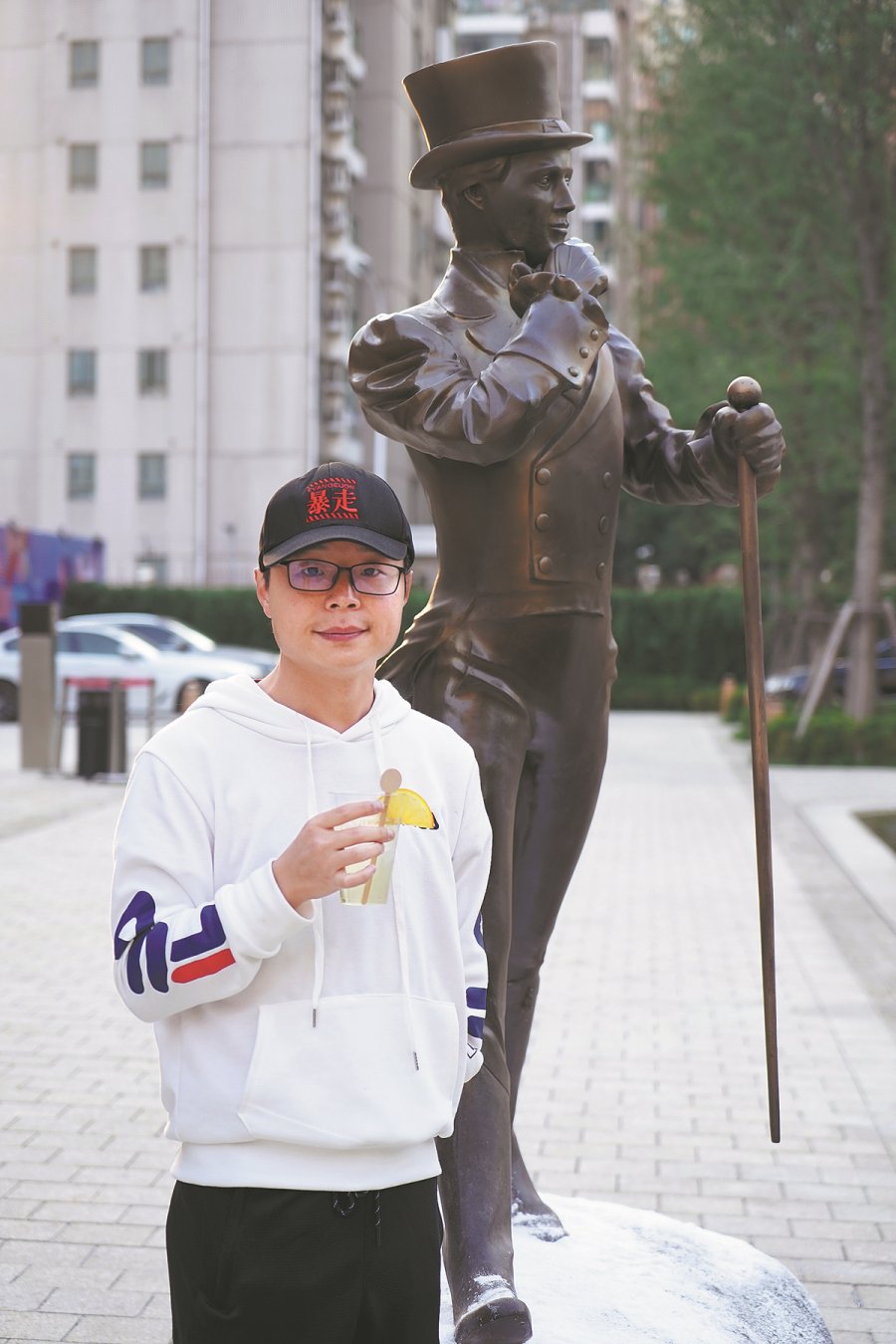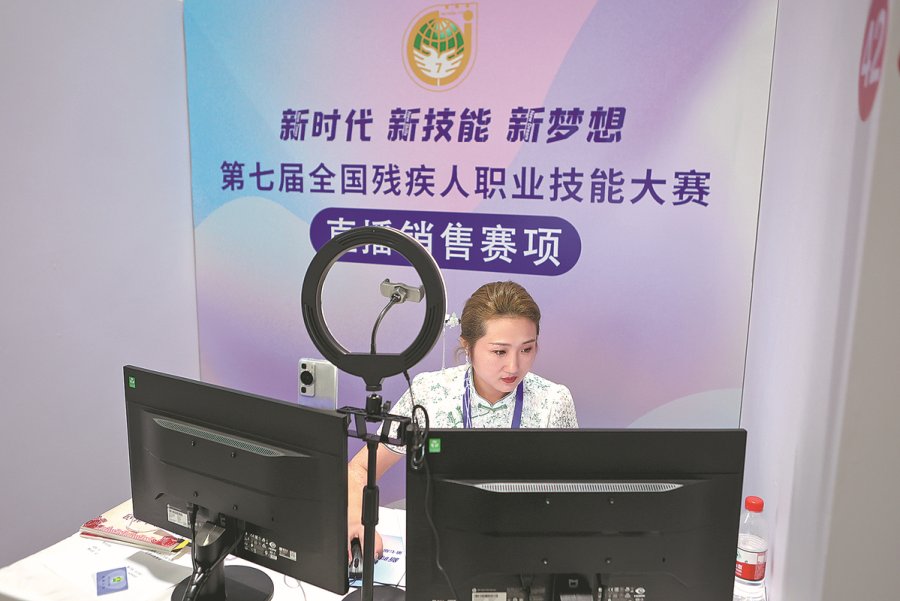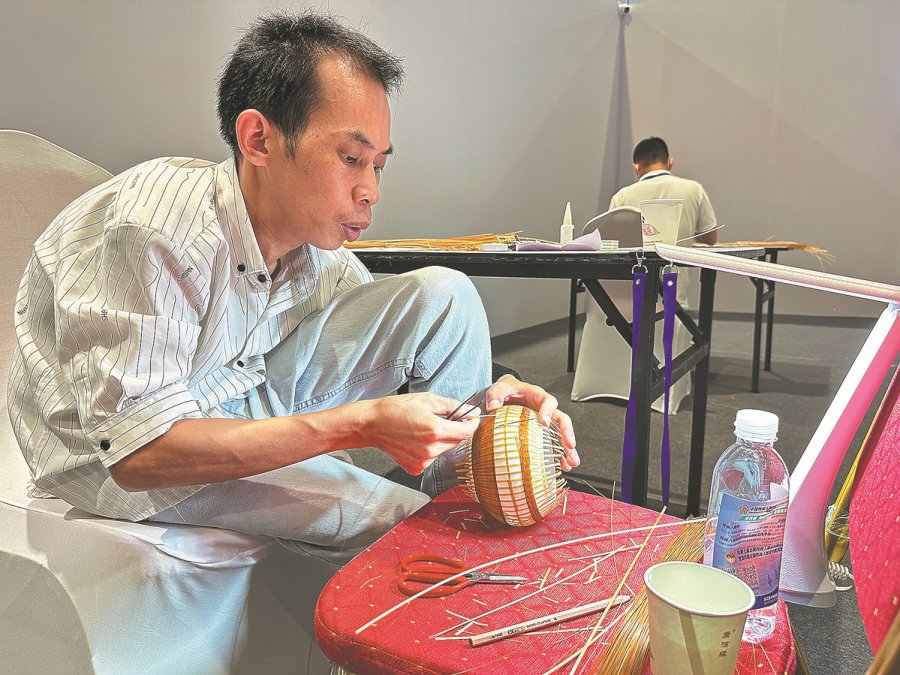August 3, 2023
BEIJING – Policy support, funding and legislative changes are improving their lives
Born with no left hand and a malformed forearm, 38-year-old Yu Sha was raised in a Shanghai orphanage.
After finishing school, he was admitted to a vocational college in 2006 to study information technology. He soon discovered that fending for himself outside a supportive environment was a major challenge.
“I was not fit to function in society at the beginning,” Yu recalled. “I didn’t even know how to take a taxi or the subway.”
After graduating from college, Yu secured a low-paid job but was not content wasting his time doing unfulfilling work. “I started to take skills-training courses and made every effort to improve my education,” he said.
In 2011, Yu obtained a bachelor’s degree in business management from Shanghai Jing’an District College, and in 2019, he earned a degree in software engineering from Shanghai Open University.
His persistent efforts to advance his knowledge and overcome his disability were rewarded in June when he came first in the cybersecurity section at the Seventh National Vocational Skills Competition for the Disabled held in Jinan, Shandong province.
“I was told by the coaches and judges that I looked very calm during the competition,” Yu said.

Du Dongdong arranges a necklace he designed for the competition. [ ZHAO RUIXUE/CHINA DAILY]
Yu’s path to the podium began at a city-level skills competition for disabled people in September.
“I started to work for the Shanghai Cyber and Information Security Emergency Center in 2015 and was transferred to the Shanghai Cyberspace Affairs Office on a temporary basis in 2019. I had seen some advertisements for these types of skills competitions before, but I never thought I would be one of the competitors,” he said.
Yu placed third in the city-level skills competition and was one of two participants selected to represent Shanghai at the national competition.
“Me and many other competitors undertook highly intensive training in Shanghai’s Songjiang district from June 12 to 21, before we departed for the national competition,” he said.
Yu and his two teammates competing in the cybersecurity event got up around 6:30 am for lessons and training. From 8 am till 10 pm they studied how to reinforce the security of firewalls and servers and close loopholes.
On the day of the national competition, their event began at 9 am and lasted for five hours.
“The national competition was a bigger challenge for competitors because the questions were all linked with another, which meant that you couldn’t skip to solve question two when you hadn’t finished question one,” Yu said.
Strength to strength
The national skills competition for disabled people, organized by the Ministry of Human Resources and Social Security and the China Disabled Persons’ Federation, is held every four years.
This year’s event — held from June 27 to 29 — attracted 950 contestants from 32 provincial delegations, 58 competitors more than the previous competition. The oldest contestant was 59 years old and the youngest 16.
About 51 percent of competitors are physically disabled, while 30 percent have hearing or language disabilities and 3 percent have visual impairment.
This year’s competition featured nine new events including cybersecurity, 3D-printing technology, and nail beauty. Seven other events, including massage, were dropped.
“It is a turning point in my life and I’m very honored to get the opportunity to stand on the stage,” said 20-year-old Pang Tianyu from Shandong, who came first in the 3D-printing technology event.
“It’s a surprisingly good result,” he said. “I thought taking a place in the top ten would be my best result because I faced very competitive rivals from other delegations.”
When he was 9 years old, Pang’s sciatic nerve was damaged during a botched medical procedure, which left him with a weak left leg and trouble walking.
“I never treat myself as a disabled person, and my peers and classmates never look down on me because of my disability,” he said. “I’m now in my second year at the Shandong Industrial Technician College majoring in mechanics.”
Pang said he had always had a strong interest in 3D-printing technology and began studying it in April last year.
“My college and the Shandong Disabled Persons’ Federation gave me great support after I was selected as a contestant for the national event last July,” he said.
He continued taking his regular classes till March, and trained for the competition at night. “I took leave from my classes from March to get fully prepared for the national competition,” he said.
“My two coaches were with me from 7 am to 11 pm every day. When I got a sample test in April, I thought it would be very difficult to finish the event. But I repeated the same things and kept practicing. Two weeks before the competition started I was finally organized enough to compete.”

Yu Sha, winner of the cybersecurity contest, poses for a picture in Shanghai. [Photo provided to China Daily]
Wang Xinyi, 32, and her husband Zhang Bo, 31, from Huzhou, Zhejiang province, were involved in the livestreaming sales and cybersecurity events at the competition.
Wang worked in her dream job as a kindergarten teacher until she was 18, when her hand was badly damaged in a traffic accident.
“I was once told by a little kid that she was scared of my hand so I decided to quit the job. I was in a deep depression at the time,” she said.
With the support and love of her parents and friends she opened a bubble milk store and met her future husband.
“Although he lost two arms due to an electric shock accident when he was six, I could sense his sincerity and perseverance when I looked in his eyes,” she said.
Zhang Bo is a professional coach who runs a swimming center.
Despite both having disabilities, Wang and Zhang keep challenging themselves and exploring new avenues. She was selected to compete in the livestreaming sales event at the national competition while he contested the cybersecurity event after both won at the provincial trials.
“I started to do livestreaming sales in 2013 and took a two-week training course before joining the national competition,” Wang said.
The judges evaluated contestants on criteria such as setting up a livestreaming room and their audience numbers. They also offered advice to Wang on sales skills and data analysis. “The competition offers a good platform for us to communicate and learn from each other,” she said.
Wang finished fifth and Zhang fourth in their individual events.

Wang Xinyi competes in a livestreaming contest during the skills competition. ZHAO RUIXUE/CHINA DAILY
Brighter future
China has channeled great resources in the form of supportive policies, finance and legislation, to improve the living conditions of people with disabilities and expand their prospects.
The growing digital economy and new industries have also created more job opportunities for disabled people.
The amended Vocational Education Law, which took effect from May 1 last year, says authorities should take measures to support disabled people’s educational institutes, vocational schools and other educational organizations to offer vocational training programs to disabled people.
By the end of 2022, over 9.05 million registered disabled people had found jobs. About 502,000 disabled people finished skills-training programs in 2022, according to the China Disabled Persons’ Federation.
“It’s encouraging to see that the employment of disabled people has greatly changed over the past decade,” Cheng Kai, vice-president of the federation, said in a recent interview with people.cn.
“In recent years, we’ve seen the employment rate of disabled people in urban areas rise by nearly five percentage points. They are now showing their talents in different sectors and industries.”
Cheng said the skills competition was an example of meeting disabled people’s needs. The adjustment to the event categories this year reflected disabled people’s career preferences.
“We’ve seen many talented disabled people at the competition, especially at some internet-related events,” he said. “They are also showing great passion and loyalty for their jobs.”
Wang Ning is the vocational capability director of the federation’s Employment Service and Administration Center.
He said that the nine new competition events including drone operation and 3D-printing technology cover sectors such as digital economy, advanced manufacturing and the modern services industries. The emergence of these careers for disabled people will improve their employment prospects and provide higher incomes.

A bamboo weaving contest is held as part of the competition. ZHAO RUIXUE/CHINA DAILY
“Home-based flexible jobs have become a mainstream choice for disabled people,” Wang said. “Many disabled people, especially those with severe disabilities, can’t easily step out of their homes and enter society. But they are highly focused and careful and have advantages and abilities when compared with able-bodied people.”
Organizations and companies are also making jobs more accessible for people with disabilities.
Beijing Yisheng Wuyou Technology company offers skills-training courses for disabled people and recommends suitable positions for them.
To date, the company has helped over 16,000 disabled people find work.
“It’s difficult for disabled people to connect with companies to find a job, so we act as a bridge between the disabled people and the company,” said Sun Jinzheng, founder and president of Beijing Yisheng Wuyou Technology.
“We can help the company to set up positions fit for disabled people.”
Yu, winner of the cybersecurity event, said he plans to join a Shanghai club in September that helps disabled people learn job skills. He hopes to teach computer skills.
“I think I should take more responsibility after participating in the competition,” he said.
“The disabled peers I’ve seen at the competition are outstanding people, but there is still a large population of disabled people living lives that are not good. The information and computing-related work I’m doing is highly-skilled. If more disabled people join this industry and get well trained, their lives will improve.”
Yu said in the past he had felt like a “lonely soldier” fighting for his life. “But I’ve got friends now to work together with and gain a sense of belonging. I will do my best to help my disabled peers live better lives,” he added.


